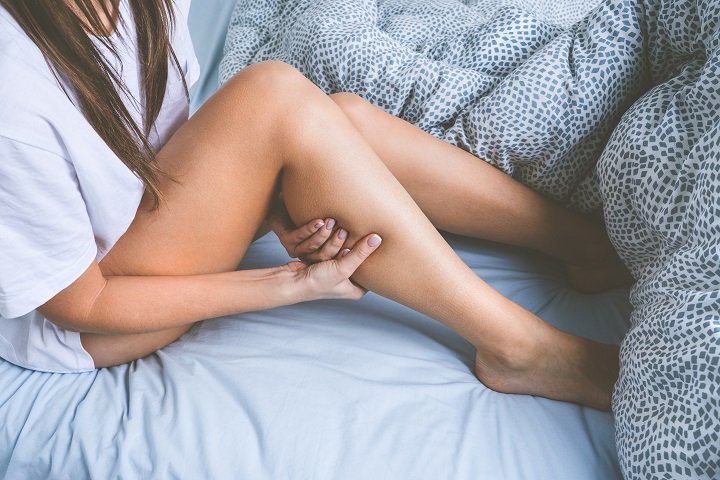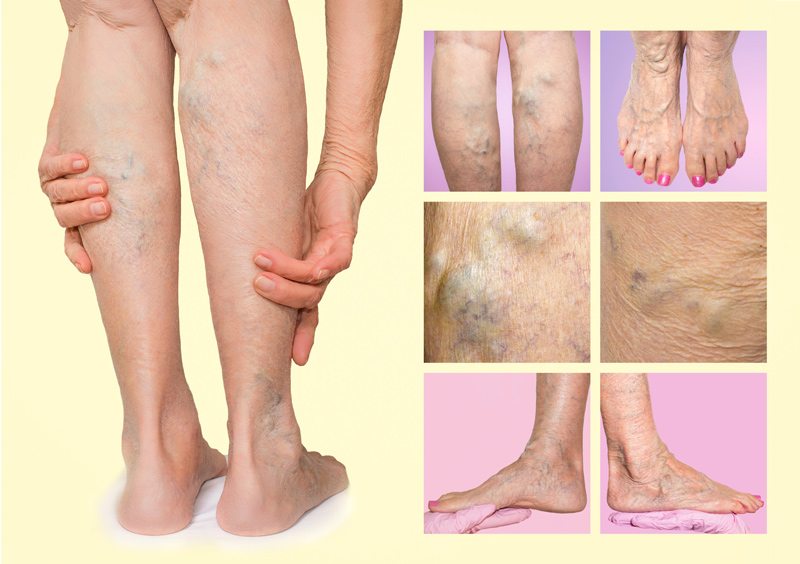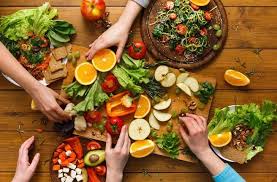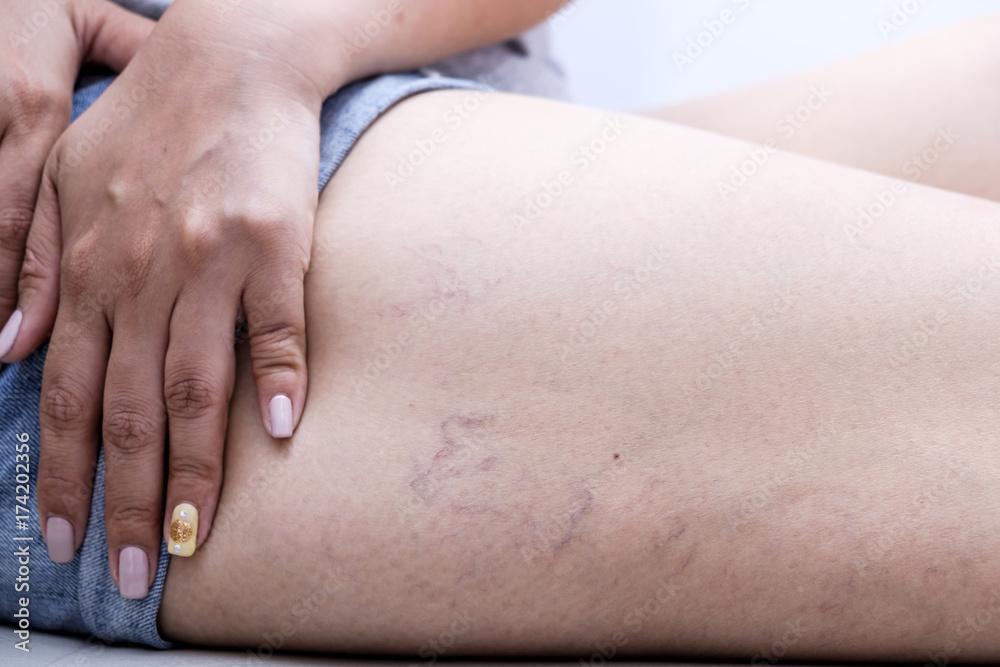Food & Diet That May Help Resolve Symptoms of Varicose Veins: A Comprehensive Guide
Varicose veins, those swollen, twisted veins that often appear on the legs, are caused by weakened vein walls and faulty valves that allow blood to pool in the veins. While lifestyle changes and medical treatments are essential for managing varicose veins, the foods you eat can also play a critical role in improving blood circulation, reducing inflammation, and strengthening your veins.Food & Diet That May Help Resolve Symptoms of Varicose Veins.
In this article, we will discuss the foods and dietary habits that may help alleviate the symptoms of varicose veins, enhance vein health, and prevent the condition from worsening. Additionally, we’ll provide tips on building a diet to support healthier veins.

The Role of Diet in Managing Varicose Veins
A balanced, nutrient-rich diet can help manage varicose vein symptoms by:
- Improving circulation
- Reducing inflammation
- Strengthening blood vessel walls
- Promoting healthy blood flow
- Aiding in weight management (which reduces pressure on veins)
By incorporating the right foods into your diet, you can help reduce the severity of varicose vein symptoms, such as swelling, pain, and heaviness in the legs. Let’s dive into the specific foods and nutrients that benefit vein health.
1. High-Fiber Foods
Why fiber helps: Constipation can increase pressure on veins, worsening varicose veins. A high-fiber diet helps prevent constipation, reducing strain on veins in the legs.
Foods rich in fiber include:
- Whole grains (brown rice, oats, quinoa, barley)
- Legumes (lentils, beans, chickpeas)
- Vegetables (broccoli, carrots, spinach, artichokes)
- Fruits (apples, pears, berries, bananas)
Including a variety of fiber-rich foods in your diet helps maintain healthy digestion and prevents unnecessary pressure on your veins.
2. Foods Rich in Bioflavonoids
Why bioflavonoids help: Bioflavonoids are plant compounds known for their antioxidant and anti-inflammatory properties. They strengthen capillaries, improve blood circulation, and reduce the appearance of varicose veins by lowering blood pressure inside the veins.
Foods high in bioflavonoids include:
- Citrus fruits (oranges, lemons, grapefruits)
- Berries (blueberries, blackberries, strawberries)
- Dark leafy greens (spinach, kale, collard greens)
- Peppers (red, yellow, and green bell peppers)
- Onions and garlic
Bioflavonoids work by protecting blood vessels and preventing oxidative damage that can worsen varicose veins.
3. Antioxidant-Rich Foods
Why antioxidants help: Antioxidants reduce inflammation and protect cells from damage caused by free radicals. This can help minimize the inflammation and swelling associated with varicose veins.
Foods rich in antioxidants include:
- Dark chocolate (in moderation)
- Green tea
- Red wine (in moderation)
- Berries (especially blueberries and raspberries)
- Tomatoes
- Nuts and seeds
Incorporating antioxidant-rich foods into your diet helps maintain vein health by reducing inflammation, which can worsen varicose vein symptoms.

4. Foods High in Vitamin C
Why Vitamin C helps: Vitamin C is crucial for collagen production, which strengthens blood vessel walls. Stronger veins are less likely to become varicose. Additionally, Vitamin C improves circulation and reduces inflammation.
Foods rich in Vitamin C include:
- Oranges and other citrus fruits
- Kiwi
- Strawberries
- Broccoli
- Bell peppers
A diet rich in Vitamin C helps repair damaged veins, improve blood flow, and reduce varicose vein symptoms like swelling and discomfort.
5. Foods Rich in Omega-3 Fatty Acids
Why Omega-3 fatty acids help: Omega-3 fatty acids promote healthy blood circulation by reducing inflammation and lowering blood pressure. This helps alleviate pressure on varicose veins and prevents further damage to vein walls.
Sources of Omega-3 fatty acids include:
- Fatty fish (salmon, mackerel, sardines)
- Flaxseeds and chia seeds
- Walnuts
- Algae-based supplements
Omega-3s support healthy circulation and reduce inflammation, making them vital in managing varicose vein symptoms.
6. Potassium-Rich Foods
Why potassium helps: Potassium helps regulate fluid balance in the body and prevents water retention, which can exacerbate swelling in the legs and feet caused by varicose veins.
Foods high in potassium include:
- Bananas
- Sweet potatoes
- Avocados
- Spinach
- Beans (black beans, kidney beans)
- Coconut water
Including potassium-rich foods in your diet can help reduce leg swelling and promote better blood flow, reducing varicose vein discomfort.
7. Hydrating Foods and Fluids
Why hydration helps: Proper hydration is essential for maintaining healthy circulation and preventing blood from becoming thick, which can lead to blood clots and worsen varicose veins.
Hydrating foods and fluids include:
- Water
- Cucumber
- Watermelon
- Celery
- Strawberries
Drinking plenty of water and consuming hydrating foods helps keep blood flowing smoothly and prevents varicose vein symptoms from intensifying.
8. Anti-Inflammatory Spices
Why anti-inflammatory spices help: Inflammation worsens varicose vein symptoms. Anti-inflammatory spices like turmeric and ginger help reduce inflammation and improve circulation.
Spices with anti-inflammatory properties include:
- Turmeric
- Ginger
- Cayenne pepper
- Garlic
Adding these spices to your meals can provide additional support in reducing inflammation and varicose vein discomfort.

Foods to Avoid
Certain foods can worsen varicose vein symptoms by promoting inflammation, poor circulation, or water retention. Avoiding or limiting these foods can help manage your symptoms:
- Processed foods: Foods high in sugar, salt, and unhealthy fats can lead to inflammation and weight gain, increasing pressure on veins.
- Salty foods: Excess salt can cause water retention, leading to leg swelling.
- Alcohol: Overconsumption of alcohol can dilate blood vessels, worsening varicose veins and causing more discomfort.
- Sugary foods: Refined sugars can cause blood sugar spikes, leading to inflammation and poor circulation.
Building a Diet to Support Vein Health
To support your vein health and alleviate varicose vein symptoms, aim to incorporate a variety of nutrient-dense foods into your daily meals. Here’s a sample meal plan to get started:
- Breakfast: Oatmeal with berries and a sprinkle of flaxseeds (high in fiber, antioxidants, and Omega-3s).
- Lunch: A large green salad with spinach, avocado, bell peppers, and grilled salmon (rich in potassium, Vitamin C, and Omega-3 fatty acids).
- Snack: Sliced oranges and a handful of walnuts (packed with bioflavonoids and Omega-3s).
- Dinner: Grilled chicken with sweet potatoes and steamed broccoli (high in Vitamin C and potassium).
- Beverage: Green tea (rich in antioxidants).
Maintaining this type of balanced diet helps keep your veins strong, reduces inflammation, and promotes healthy blood flow.

FAQs About Food & Diet for Varicose Veins
1. Can diet alone cure varicose veins? While diet cannot completely cure varicose veins, it can significantly help manage symptoms, improve blood circulation, and prevent further vein damage when combined with other treatments like exercise and medical interventions.
2. What foods make varicose veins worse? Foods high in salt, sugar, and unhealthy fats can lead to inflammation, water retention, and poor circulation, all of which can worsen varicose vein symptoms.
3. Can drinking water help with varicose veins? Yes, staying hydrated helps maintain smooth blood flow, reduces the risk of blood clots, and prevents leg swelling, which can alleviate varicose vein symptoms.
4. Are there supplements I can take to improve vein health? Supplements like Vitamin C, Omega-3 fatty acids, and bioflavonoid supplements can support vein health, but it’s best to consult with a healthcare provider before starting any new supplement.
5. Is it okay to eat foods high in salt if I have varicose veins? It’s best to limit your intake of salty foods, as too much salt can lead to water retention and increase leg swelling, worsening varicose vein symptoms.
6. Can weight loss through diet help reduce varicose veins? Yes, losing weight through a healthy diet reduces pressure on the veins in the legs, which can help alleviate varicose vein symptoms and prevent further vein damage.
A perfect Solution Of Varicose Veins Click Here



